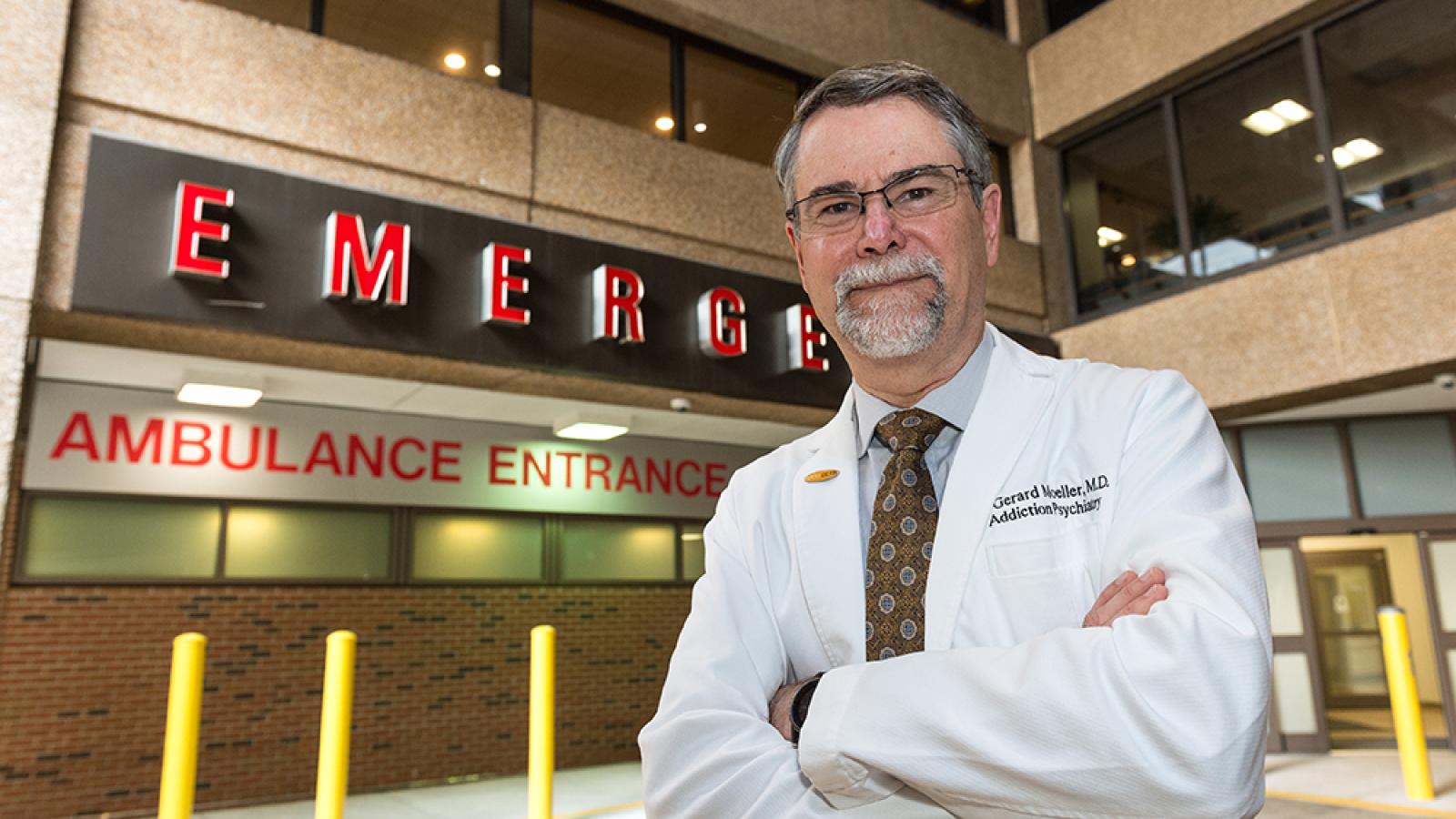
F. Gerard “Gerry” Moeller, M.D., director of VCU’s Wright Center for Clinical and Transitional Research, who also serves as the university’s associate vice president for clinical research and leader of the VCU Institute for Drug and Alcohol Studies.
Driving Change
This profile is part of a larger story, "VCU Health: A Global Leader in Mental Health".
Mental health and addictions sometimes go hand in hand. They are both brain disorders and treating one may often mean treating the other.
VCU is uniquely positioned to accomplish this through a multi-faceted approach that leverages both medication and mental health services with cutting-edge research and ever-expanding clinical care. Among those at the helm is psychiatrist and addiction expert F. Gerard “Gerry” Moeller, M.D., director of VCU’s Wright Center for Clinical and Transitional Research who also serves as the university’s associate vice president for clinical research and leader of the VCU Institute for Drug and Alcohol Studies.
In an example of VCU’s big-picture approach, Dr. Moeller and his team recently completed a study into a new insomnia medication for patients who suffer from opioid use disorders. He explained that many existing insomnia drugs carry abuse liability, which means they can’t be offered to people who already face high risks of relapsing in treatment.
The VCU study focuses on the safety of a novel class of medications – orexin receptor antagonists – coupled with buprenorphine, a common drug given to help curb people’s opioid cravings.
Dr. Moeller and his team’s findings will be used to guide decisions at the National Institute on Drug Abuse, or NIDA, next week.
It’s just one example of VCU’s reputation as an innovator in fighting the public health crises of mental health and addiction.
“VCU is positioned to really make a huge impact in the treatment of substance use disorders because of the health system’s commitment to outpatient care and consult services and the extensive research taking place, from basic science all the way to clinical trials in the community,” Dr. Moeller said, who is also a professor and division chair for addiction psychiatry in the Department of Psychiatry within the VCU School of Medicine, as well as adjunct professor in that school’s Department of Pharmacology and Toxicology and its Department of Neurology.
Those commitments are drawing increasing levels of grant funding, which underscores VCU’s importance as a contributor in these fields. Between 2017 and 2021, VCU’s ongoing and new NIH funding in substance abuse research rose from $20.8 million to $24.1 million. It rose even higher in 2022, to $24.2 million, taking VCU’s ranking from 18th nationally for research funding to 11th.
Building on its leadership role in mental health and addiction research and care, VCU is lending its expertise to programs that will drive change across the state. It’s currently making inroads to expand outpatient treatment services in rural areas around Virginia, including Tappahannock.
Dr. Moeller noted a partnership with Virginia Medicaid – administered by the Virginia Department of Medical Assistance Services – helped establish the VCU Health Virtual Bridge Clinic in 2021. The clinic offers a crucial link between VCU Medical Center’s emergency room and VCU’s MOTIVATE Clinic, which opened in 2017, so patients battling addiction have a clear course of treatment before they even leave the hospital.
Additionally, Dr. Moeller said he and his team are exploring ways to partner with the state’s Opioid Abatement Authority, created in 2021 from settlement funds from national lawsuits against pharmaceutical companies that produce prescription opioids.
“Everybody’s reaching out to us,” Dr. Moeller said. “We’re well positioned to have a significant impact across the commonwealth.”
If you would like to support addiction research at VCU, please contact Heather Phibbs, director of development for the neurosciences, Office of Medical Philanthropy and Alumni Relations, at 804-628-8907 or heather.phibbs@vcuhealth.org.


